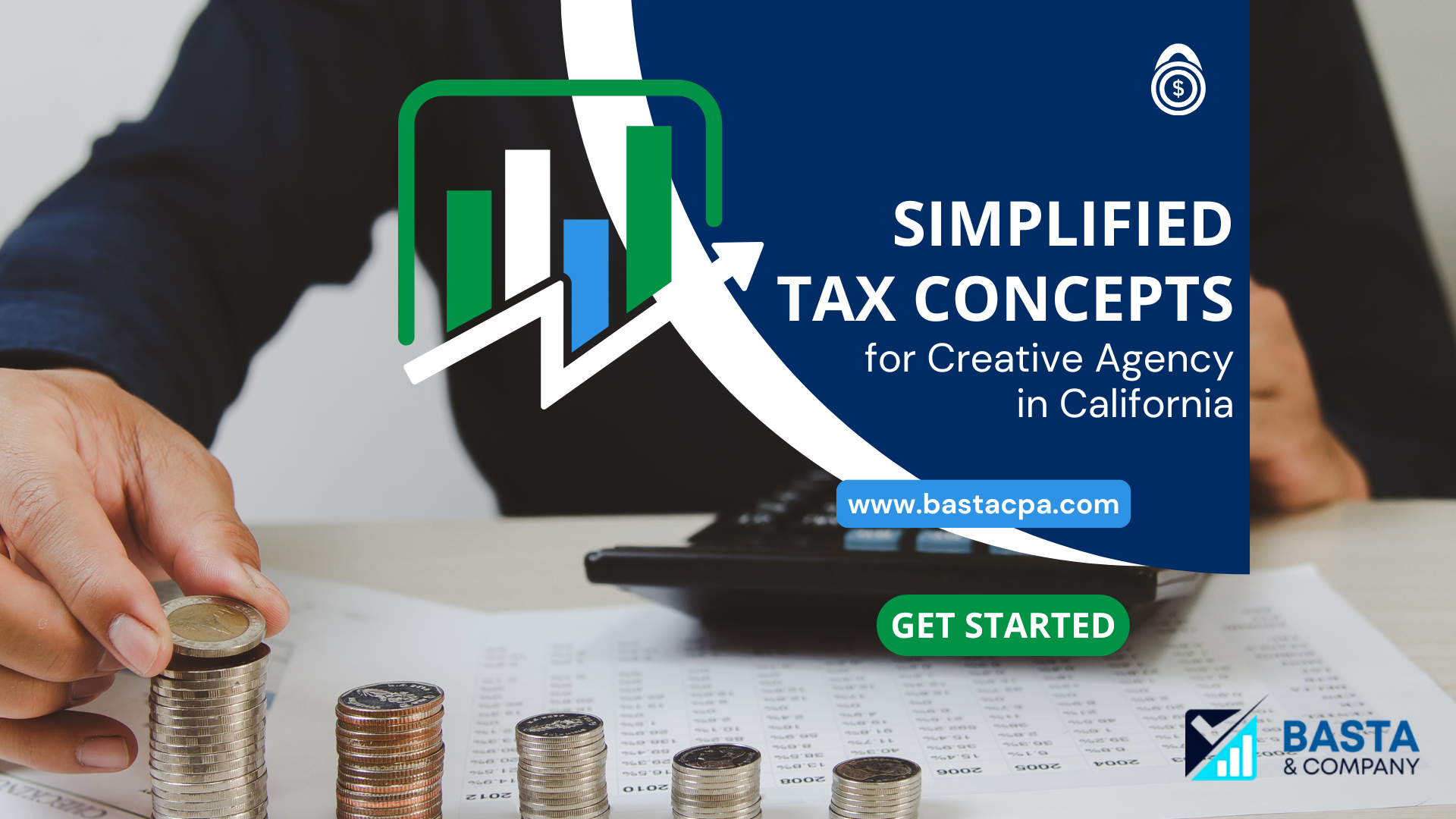
Simplified Tax Concepts for Creative Agency in California
Content Team • May 5th, 2025
A creative agency is all about ideas, innovation, and impact. However, these are not enough to run this business practically. You would also need to establish sales and marketing strategies and keep a thorough and detailed accounting system to thrive in this competitive space.
To be honest, navigating taxes and accounts isn’t exactly a favorite part of running an agency. Agree or not? Whether it is about handling brand campaigns, video production, or digital marketing, the last thing they want is to go through confusing tax forms and deadlines.
The good news is – You don’t need to be a tax or accounting expert! Instead, you just need to understand the tax concepts for your agency in California.
1. Choose the Right Business Structure: Do you know – it’s your business structure that determines how much taxes you have to pay? Hence, if you make the right choice, you can save significantly.
Usually, there are four types of business structures you may come across.
The best thing to do is consult a CPA and understand the business structures before changing yours to save taxes.
2. Keep Track of All Agency Expenses: Creative agencies while focusing more on branding and advertising, often miss out on deductions because they don’t track minor, everyday costs. In order to thrive in this marketplace, it’s crucial to keep track of all your expenses and stay organized.
A few things to monitor and keep a record are –
All these expenses related to your business can add up to reduce the taxable income.
3. Use the Right Accounting Method: In this digital age, it’s good to rely on various accounting tools instead of struggling with manual records. Look for the right accounting system and use an appropriate method to track income, monitor expenses, and generate real-time financial reports.
Cloud-based tools like Quickbooks and Freshbooks allow creative agencies to automate invoicing, manage payroll, and even sync bank transactions. This will save you time, reduce human error, and eventually let you focus on other essentials.
4. Stay Ahead with Quarterly Estimated Tax Payments: California-based creative agencies that are earning income without regular withholding must make quarterly estimated tax payments. This means instead of paying everything at once during tax season, you will need to make payments to both:
You can pay these taxes four times in a year and missing out on the deadline can lead to penalties and interest charges.
5. Know Your Sales Tax Obligations: Of course, not everything in your agency is taxable – but some things definitely are. For example,
Selling tangible goods like printed materials, branded merchandise, or signage. You have to register for a seller’s permit and collect California sales tax.
Digital goods and services. Though these are not taxed, exceptions exist depending on how the product is delivered.
6. Take Advantage of R&D Tax Credits: Many creative agencies often miss out on taking advantage of federal and state incentives. If your agency is involved in innovation, testing, or problem-solving, you may be eligible for R&D tax credits. The activities include:
These credits can offset payroll taxes and reduce the overall tax bill.
7. Separate Personal and Business Finances: A major problem occurs when you mix all your personal and business expenses. Remember, it’s only business-related expenses are eligible for tax deductions and when everything is jumbled together, it’s easy to miss out on legitimate write-offs. Therefore, it’s better to keep them separate to ensure accuracy while calculating taxes.
Many agencies stick to maintaining an accounting book to keep track of expenses and income. But have you ever imagined what would happen if you were summoned for an audit and your accounting books turned out to be a disaster? To avoid such consequences, it’s better to partner with a specialized accounting professional and keep your agency financially sound.
A certified tax accountant can help you:
Taxes are no longer a headache if you find a right accounting partner. Basta & Company is a leading CPA firm in California, promising to help clients maximize their tax deductions and make smarter financial decisions. Feel free to contact us for expert advice.
Schedule a complementary consultation today!

Samy Basta brings you more than 20 years experience in tax, financial, and business consulting to his role as founder of Basta & Company. His focus is primarily strategic business planning, empowering clients to set priorities, focus energy and resources, and strengthen operations. In addition, Samy and his firm provide strategic counsel, and technical insight, on a wide range of needs, including tax saving strategies, tax return compliance, as well as choice of entity.